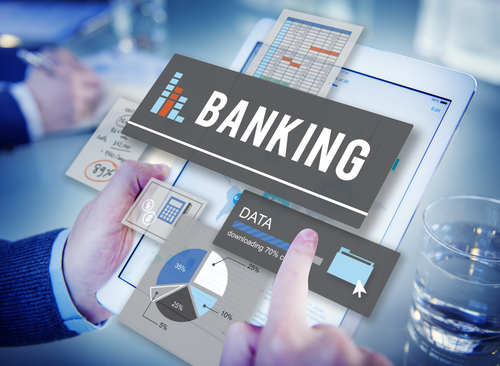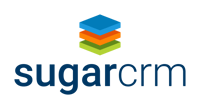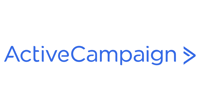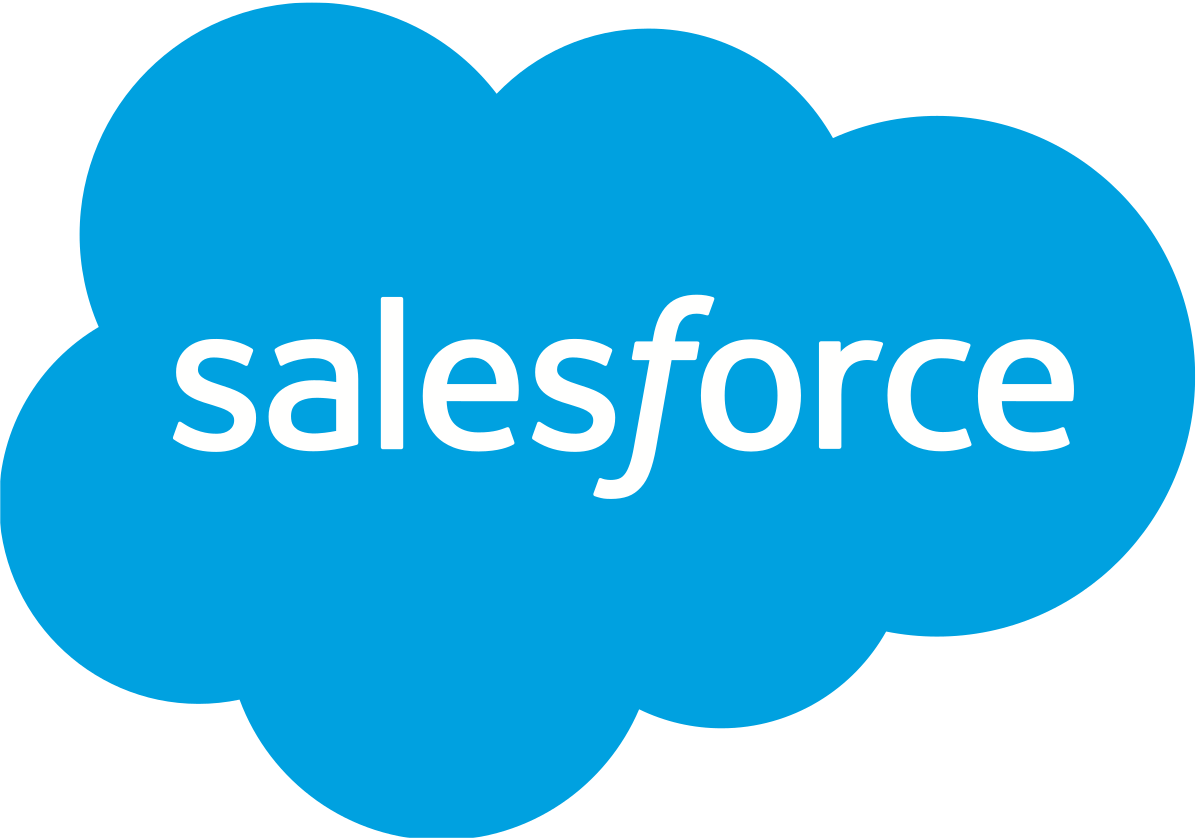Boost your financial operations with CRM for the banking industry
CRM System for the Banking Industry
CRM for the banking industry helps develop customer-focused strategies that elevate marketing campaigns, boost sales, and deliver top-notch customer service.
Furthermore, a banking CRM system paves the way for banks to establish a customer-centric business model. This empowers them to personalize interactions, foster seamless communication between departments, and even amplify the efficiency of their dedicated banking professionals.

Features specific to banking CRM
- Wealth management and financial planning
For banks offering wealth management services, CRM systems can include wealth management and financial planning tools. These features allow advisors to create personalized financial plans, track investment portfolios, and provide tailored advice to clients.
- Cross-selling and lead generation
Banking CRM platforms are equipped with lead generation and cross-selling functionalities. They help banks identify opportunities for upselling or cross-selling products and services to existing customers, enhancing customer relationships and revenue generation.
- Workflow automation
Banks can streamline various customer interactions through automation. This means customers can effortlessly use the bank's services, while the bank itself can keep a constant eye on real-time updates. Automation can even highlight alterations in data, such as a customer expressing interest in a loan or opening a new account. These notifications empower financial advisors and bank staff to enhance their engagement with customers.
- Data analytics and reporting
Leveraging data analytics and reporting brings a substantial benefit: it enhances and ensures a more precise service experience. By examining a customer's historical data and reviewing past interactions, employees gain additional insights. These insights enable banks to create tailored customer experiences and address areas of concern more effectively.
Best Banking CRMs

Microsoft Dynamics 365 is a highly adaptable CRM solution that effectively serves the banking and financial services industry by enhancing customer management, improving product offerings, ensuring compliance, and providing valuable insights through analytics.
4.3
Nextiva is a communications platform that integrates corporate applications, intelligence, and automation. This aids firms in communicating with their customers and forging stronger ties with them.
4.1

Keap offers document management capabilities, allowing banks to securely store and manage these critical documents while ensuring compliance with industry regulations.
4.1

SugarCRM is a software platform that holds customer experience as its number one priority. The platform uses artificial intelligence and historical data to provide your reps with actionable insights for managing their customer relationships.
3.8
-2.png?width=200&height=93&name=%D0%91%D0%B5%D0%B7%20%D0%BD%D0%B0%D0%B7%D0%B2%D0%B0%D0%BD%D0%B8%D1%8F%20(1)-2.png)
360view is also a CRM platform specifically for banks and credit unions. As the name suggests, its main benefit is to provide a 360-degree view of relationships, products, services, and more.
3.4

A great CRM tool for retail banking is ActiveCampaign, which offers a wide range of features for sales, customer support, and marketing.
4.2
What is a CRM for Banking?
In simple terms, a CRM in banking is like a super-smart assistant that helps banks keep tabs on their interactions with customers.
It takes care of tasks like entering data automatically and dives deep into the numbers to help you group customers and see how well everything is going. Whether you're aiming to boost your marketing efforts, speed up your sales, or provide top-notch customer service, a CRM is your go-to tool for better communication.
Different types of CRM for the Banking Industry
Different banks have different needs, which is why software companies have developed a variety of banking CRM systems to assist banks in delivering outstanding customer experiences.
Now, let's delve into the three most prominent types of banking CRM software:
-
Operational CRM
Operational CRM software is the go-to choice for many banks, as it covers marketing, customer service, and streamlines business processes.
Marketing automation within operational CRMs enables banks to discover the most effective strategies for promoting and selling their financial services. These CRMs provide comprehensive tools for designing, launching, and evaluating marketing campaigns across various channels, including email, social media, phone, and web pages.
Service automation is a key feature, enhancing the customer experience by swiftly resolving queries, providing a robust knowledge base, and maintaining records of everything.
Sales automation is another valuable aspect, optimizing the sales process through features like deal pipelines, lead management, sales forecasts, contact management, and more. This makes operational CRM a must-have for sales teams.
-
Analytical CRM
Sometimes, banks require the ability to analyze data and uncover valuable insights for marketing, sales, and customer support.
These CRM systems come equipped with tools for data analysis, aiding decision-making, defining milestones and goals, and evaluating campaign effectiveness. These insights empower banks to offer enhanced services to their clients.
-
Strategic CRM
Strategic CRM, also known as collaborative banking CRM software, is ideal for large banks with multiple departments that need efficient cross-communication systems. Collaborative CRMs bring various teams together, fostering seamless collaboration to tackle challenges effectively.
Ultimately, this leads to a better level of customer service, as teams can work harmoniously to meet clients' needs.
What are the benefits of CRM in the healthcare industry?
Healthcare CRM is used for many reasons, but the overall goal is improving patient experience and the quality of services provided. With it, you get the following advantages:
- Information storage on one consolidated cloud platform. A single resource is created that everyone can access.
- If patients regularly interact with multiple doctors, CRM for clinics makes it easy to track past customer visits.
- Coordination of the provision of medical care by doctors and automation of the work of departments of the medical institution, improvement of the results of the work of the medical institution.
- Thoughtful options of the CRM system for the clinic record all stages of the staff's work. This opens up space for analysis and helps management quickly eliminate problems.
The Top Features of CRM for the Banking Industry
In recent years, Customer Relationship Management (CRM) software has emerged as a vital tool for businesses, particularly within the banking industry. CRM systems empower banks to manage customer relationships effectively, streamline operations, and boost profitability. The key features include:
- Customer Data Management
At the core of a banking CRM lies customer data management. This feature enables banks to get a comprehensive 360-degree view of their customers. Every piece of customer information, from demographics and account details to transaction history and communication records, finds its home in a centralized database.
This centralized repository empowers banks to gain profound insights into their clientele, enabling personalized banking experiences and tailor-made financial products that align precisely with each customer's needs.
- Sales and Marketing Automation
The automation of sales and marketing tasks is another pivotal function within a banking CRM. Banks can harness this capability to automate marketing campaigns, delivering personalized offers and promotions directly to their customers.
Furthermore, the CRM's automation prowess extends to critical sales processes like lead management, opportunity tracking, quote management, and even the seamless onboarding of new customers. This level of automation accelerates sales cycles and boosts customer satisfaction.
- Exceptional Customer Service
A CRM's customer service and support features elevate a bank's ability to deliver top-notch service. Rapidly managing, monitoring, and responding to customer inquiries, complaints, and feedback stands as a cornerstone in the banking sector.
By utilizing the CRM system, banks can efficiently track and address high-priority customer concerns, ensuring swift resolutions. Moreover, the CRM serves as a valuable tool for tracking customer inquiries and feedback, pinpointing trends, and refining products and services accordingly.
- Cross-Selling and Upselling
Banks strategically employ cross-selling and upselling to entice customers to explore additional financial products and services. A proficient CRM aids banks in identifying such opportunities based on customer transaction histories, demographics, and communication records.
Equipped with this feature, banks can tailor their sales efforts, presenting targeted offerings that align precisely with each customer's financial objectives.
- Seamless Integration with Banking Systems
A CRM that seamlessly integrates with loan processing, account opening, and transaction handling systems allows banks to harmonize their operations efficiently. By leveraging this feature, banks can automate manual tasks, reduce processing times, and minimize data entry errors. This not only reduces operational costs but also enhances efficiency, resulting in an improved customer experience.
Why is CRM a game-changer in the Banking Industry?
Well, modern banking faces a unique challenge in this digital era – meeting customer expectations. And in this age of endless information, it's all about knowing your customers inside out, providing a tailored experience, and doing it all at lightning speed.
Now, let's talk about the benefits that banks can get by implementing a CRM for banking:
- Transforming more potential customers into loyal clients.
- Personalizing and improving the customer experience through tailored communication.
- Enhancing staff productivity with quick access to client data.
- Breaking down internal data barriers and centralizing client information to prevent data silos.
And since everything seems to be going mobile these days, most banking CRMs also come with mobile apps, making life easier for your on-the-go team members. It's like having a digital assistant right in your pocket!
Selecting the Perfect CRM Software for Banking Needs
You're well aware of the transformative potential that the right banking CRM software can bring to your business. So, let's dive into the essential features that an outstanding CRM tailored for banking should include.
Streamlined AutomationIt's a no-brainer – automation is a game-changer. Equip your team with tools such as canned responses, autoresponders, workflows, automated reporting, schedules, and more. These tools are like handy assistants, streamlining the load of your employees and making their tasks smoother. Look for software that provides a comprehensive suite of automation tools, including social media management, email scheduling, and workflow builders.
ScalabilityPicture this: You invest in banking CRM software, only to find it inadequate for your expanding business within a year. Replacing it entails substantial costs and time spent on migration, onboarding, and training. To avoid this, opt for a banking CRM software that can grow with your banking needs. A Software-as-a-Service (SaaS) CRM platform is your best bet here – it can adapt as your business evolves.
Robust SecurityIn the world of financial services, security is a priority. A top-notch banking customer relationship management solution offers two critical components:
- Accessibility for your team members, anywhere and anytime.
- Fortified protection for potentially sensitive financial data.
Ensure your chosen CRM delivers secure access for your team while effectively preventing unauthorized exploitation. Security is paramount in banking, and your CRM should act as a fortress for sensitive financial information.
Insightful AnalyticsRows upon rows of data are clutter unless you can get value from them. That's where superior banking CRM software steps in, armed with robust analytics – sometimes even infused with artificial intelligence. These features are designed to show meaningful patterns and metrics from your data troves.
With these insights, you can:
- Make informed decisions and implement necessary changes.
- Resolve issues promptly.
- Anticipate your customers' needs and tailor your services accordingly.
In essence, a great banking CRM is not just about data storage but also about empowering you to harness the full potential of your data for informed action and superior customer service.
Main Advantages of CRM for the Banking Sector
While Customer Relationship Management (CRM) is significant across industries, its impact in the banking sector is particularly profound. CRM for banking has a variety of advantages:
- Streamlining Operations: CRM streamlines and automates the entire client management and service operations within a bank. From marketing initiatives to sales activities and even customer service, it organizes seamless integration through interconnected workflows.
- Enhancing Customer Loyalty and Satisfaction: CRM empowers banks to deliver personalized services that elevate customer satisfaction levels and foster loyalty with a 360-degree view of customers.
- Better Efficiency: CRM's automation capabilities effectively tackle repetitive tasks and bolster interdepartmental communication, thereby enhancing operational efficiency.
- Boosting Revenue: CRM equips banks with comprehensive customer insights, enabling targeted product offerings, service campaigns, and policy adjustments that lead to increased revenue.
- Boosting Decision-Making: Structured client data at the bank's disposal aids in making informed decisions regarding marketing strategies, sales initiatives, and customer service enhancements.
- Delivering Insightful Reports and Analytics: CRM generates precise, easily comprehensible reports and analytics. These invaluable resources aid in setting targets, identifying gaps, and tracking progress effectively.
- Facilitating Efficient Communication: Within a bank's call center, CRM for banking ensures the seamless flow of information, cultivating a foundation of trust. Customers feel confident in sharing their information and requirements with bank professionals.
- Personalizing the Customer Journey: Bank-specific CRM systems keep tabs on customer behavior and predict their needs. Leveraging key data analysis, the software offers suggestions on how the bank can meet customer expectations.
- Strengthening Customer Experience: Banking CRM platforms compile customer data and personal information, enabling the delivery of tailored services. This customer-centric approach enhances the overall customer experience and engenders loyalty.
- Effective Lead Management: From lead capture to conversion and nurturing, CRM solutions for banks streamline the entire lead management process, ensuring efficiency at every stage.
FAQs
What are the leading CRMs for banking?
In the world of banking, there's a diverse range of CRM platforms to choose from. These include:
- Creatio
- Salesforce Sales Cloud
- SugarCRM
- monday sales CRM
- Microsoft Dynamics 365
- Vymo
- 360view CRM
- HubSpot
- Nextiva
- Oracle NetSuite
Banks have the flexibility to pick the one that aligns best with their unique needs and goals.
What are the components of CRM for the banking industry?
A solid banking CRM strategy is built upon several vital elements: technology, CRM strategy, processes, and the people involved. When these components harmonize, your bank stands ready to not only attract new customers but also nurture lasting relationships with your existing clientele.
Is CRM software useful in the banking sector?
CRM (Customer Relationship Management) software is a versatile tool in the banking sector. It serves a multitude of purposes, including managing customer data, monitoring customer interactions, and generating insightful reports and analytics. Moreover, it plays a pivotal role in automating sales and marketing tasks, streamlining communication channels, and enhancing the overall customer service experience.
What are some common problems with banking CRMs?
Although customer relationship management (CRM) software offers many benefits to banks, it’s not without its challenges and limitations. Banks often encounter common issues when utilizing CRMs, such as data quality concerns, challenges in integrating with current systems, and the struggle to tailor the CRM to precisely match their unique organizational requirements.
Other CRM Industries
Higher Education
Attract, sustain, and serve your students with CRM for higher education
Insurance
Reduce risk and increase profits with CRM for Insurance
Consulting
Conduct business from your pocket, with a CRM for consultants
Manufacturing
Improve the planning, production scheduling, and communication with a manufacturing CRM.
Real Estate
Manage properties, buyers, and sellers on a unified platform with CRM for real estate.
eCommerce
Improve customer relationships and reach new markets with CRM for eCommerce.
Small Business
CRM is an inexpensive software solution to scale your business.
SaaS Companies
Reduce churn and attract more customers with a CRM for SaaS.
Nonprofits
Raise more money, motivate volunteers, and grow strategically with CRM for nonprofits.
Retail
Add a personal touch to every shopping experience with CRM for retail.
Construction
Modernize your business and deliver projects faster with a CRM for construction.






.png)
